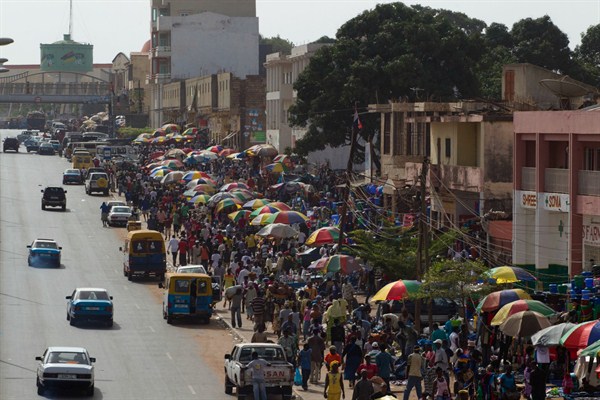Guinea-Bissau will hold a runoff presidential election later this month, after a first round of voting in late November failed to produce a clear winner. The country has been mired in a long-running political crisis under President Jose Mario Vaz, who failed to advance to the second round. Instead, two of Vaz’s former prime ministers, Domingos Simoes Pereira and Umaro Embalo, will vie for the presidency on Dec. 29. The first stage of the election was mostly fair and peaceful—a relief for a country with a long history of political violence. In an email interview with WPR, Alex Vines, head of the Africa Program at Chatham House, explains why the runoff will be a pivotal moment for Guinea-Bissau’s future.
World Politics Review: Why was Vaz knocked out of contention in the first round of voting? What will be his legacy as president?
Alex Vines: Vaz’s popularity suffered in the run-up to the election due to widespread fatigue over prolonged domestic instability. He fired six prime ministers during his five-year term, most recently Aristide Gomes, who was put forth by the ruling Party for the Independence of Guinea and Cape Verde, or PAIGC. By sacking Gomes in late October, less than a month before the presidential election, Vaz had hoped to forge a new political alliance with a group of opposition parties. But the gambit backfired spectacularly: Gomes’ government refused to dissolve, as it had the backing of many civil society organizations in the country and foreign governments. The Economic Community of West African States, or ECOWAS, a regional organization that Guinea-Bissau belongs to, emphatically condemned Vaz’s actions. The leadership crisis lasted for some 10 days until Vaz’s chosen prime minister, Faustino Fudut Imbali, resigned after ECOWAS threatened to impose sanctions.

